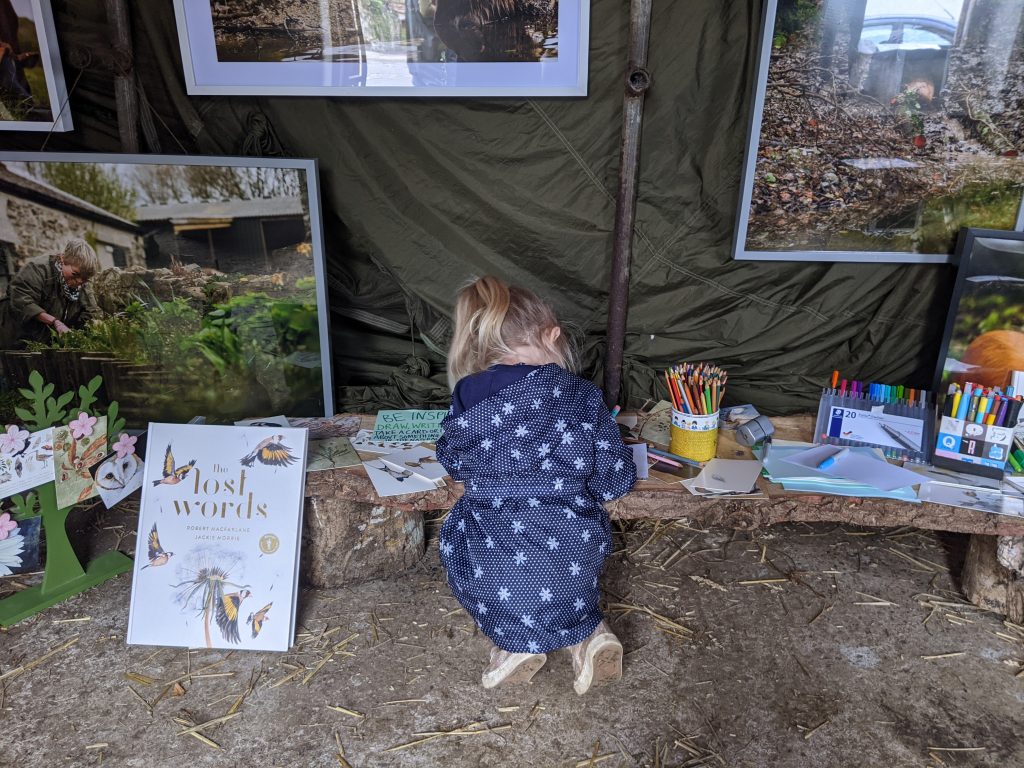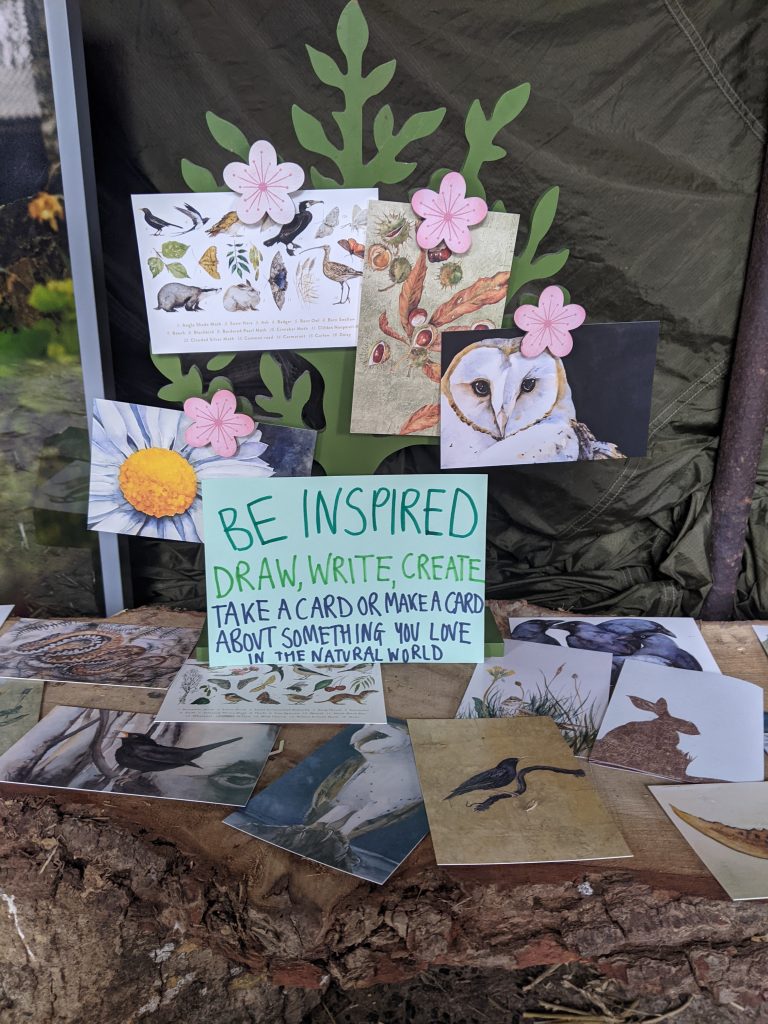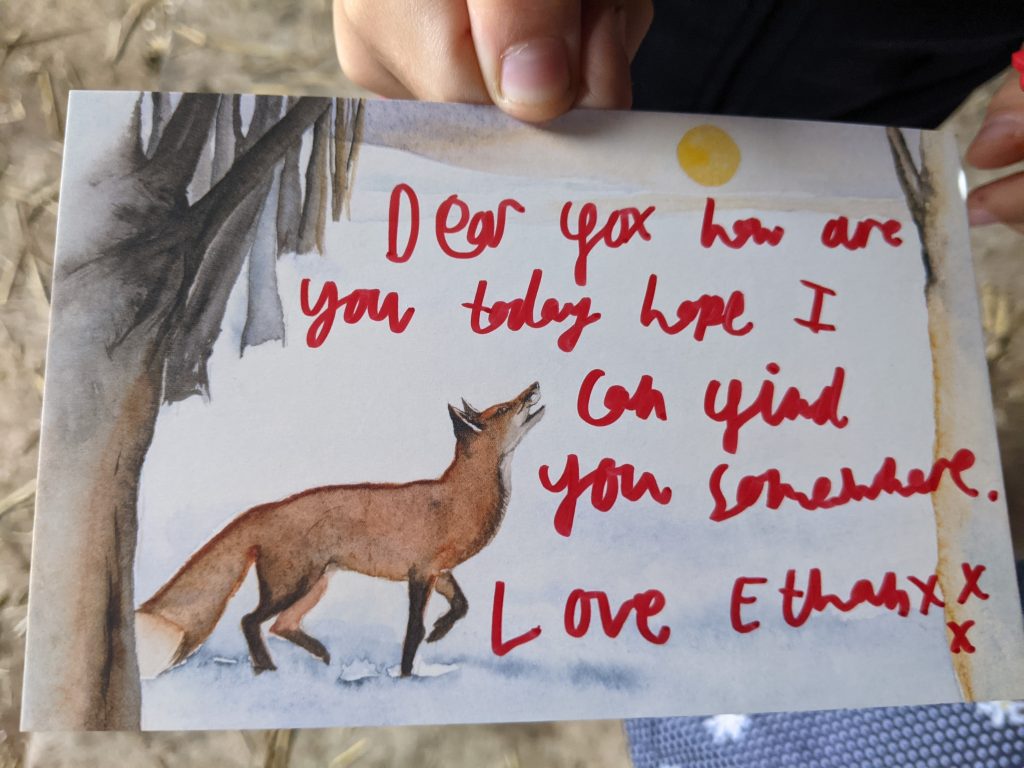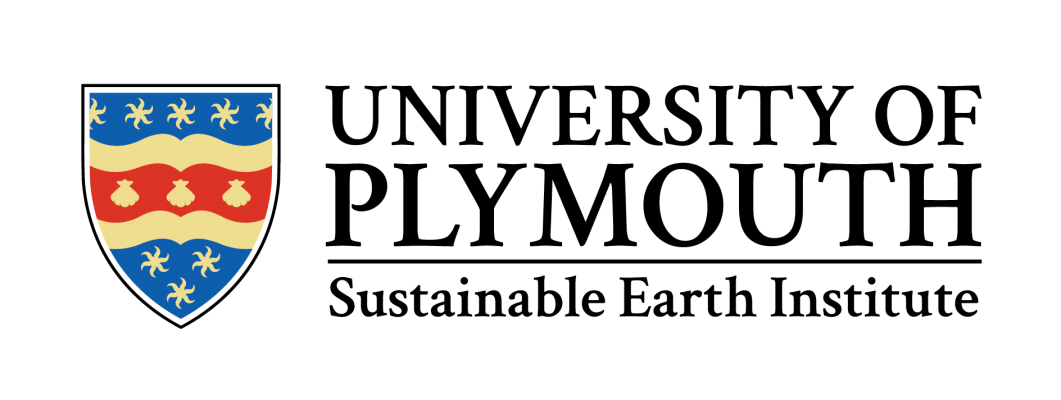Post by Dr Eva McGrath, Research Fellow Greenminds Project
Otter, acorn, dandelion, willow. Heron, conker, magpie, kingfisher. Bramble, fern, heather, newt.
These words are the names of plants, trees, birds and animals that live, move and breathe alongside us. They can be found in the streams, in the sky, falling from a tree, growing from the ground. These words are threads towards our connection with the natural world around us. Language is a fluid entity that can often be a litmus test signalling what individuals and a society notices, converses about and values. Words appear and disappear in accordance with these patterns, and lexicographers are required to periodically review the place of such words within linguistic structures such as dictionaries.
A few years ago, writer Robert MacFarlane and artist Jackie Morris noticed that words of the natural world were being replaced, in Children’s Dictionaries, by words relating to technology. Their response was Lost Words, a poetic tapestry weaving observation and rhyme, myth and adoration into and through each word, as a spell to conjure back life and to enliven the words again. The Lost Words project has gone ‘wild’, inspiring musicians and artists, alongside campaigns to distribute copies and educational packs amongst schools, to bridge the gap of knowledge, love and awe between children and the natural world.

This book inspired Eva McGrath, Research Fellow at the University of Plymouth on Green Minds, a city-wide, multi-partner project to connect people to nature in the city of Plymouth, and her partner Jake Taylor-Bruce, who works in sea-bird conservation. They used ‘Lost Words’ as inspiration for a poetry reading event at the Green Minds ‘Festival of Nature’, hosted on 27th October at Poole Farm. They set up in an old Hayloft Barn, surrounded by local artist Chris Parkes’ wildlife photography of the farm’s resident animals and wildflowers. They read poetry from the Lost Words book to individuals and families, and invited them to sit, reflect and respond. Eva sung ‘The Lost Words Blessing’, a collective song form inspired by Scottish Gaelic blessings, offering hope and urging listeners to ‘enter the wild with care and speak the things you see’. Before each poem, they shared their own personal connection to each word: for instance the hours spent by the pond watching the newts; the time when the magpie flew down the chimney; gathering conkers for school conker competitions; the sound of the lark signalling the beginning of summer; the dash and dart of the orange blue striped kingfisher, across the River Tavy.

Individuals were invited to take an illustrated card inspired by the Lost Words Collection and write a letter to the owl, to the dragonfly, to the starling and wren. One child wrote a note to a fox: ‘Dear Fox, how are you today, hope I can find you somewhere’. The audience response to the event shows the power of poetry, music and the spoken word. Through this exchange, residents of Plymouth were able to share their own connections and stories about these words, learn about the importance of wildlife species and their habitats and were inspired to look more closely at the natural world around them, in our city.

Find out more about the Greenminds Project.
